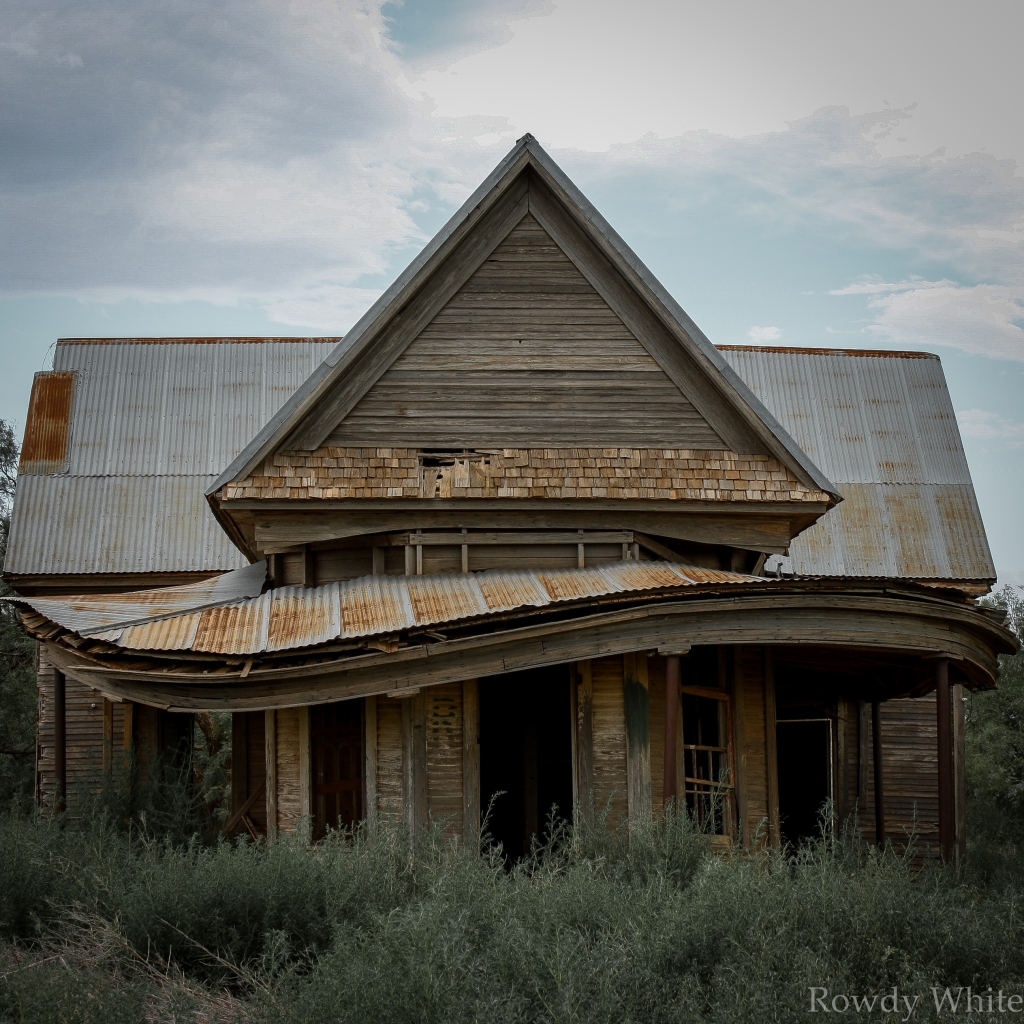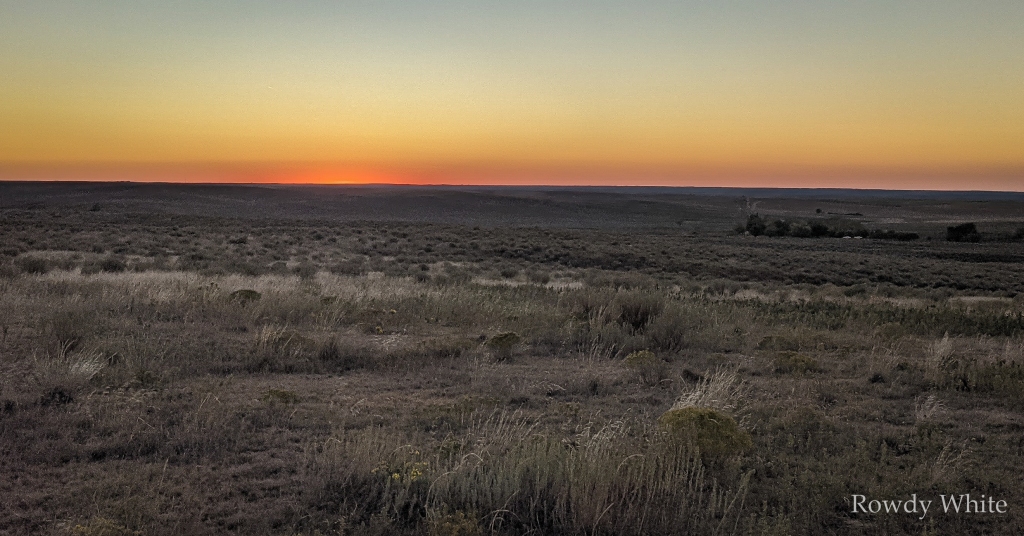I.
Ray’s little spread was a few miles from mine in that patch of sand shinnery country in Jones county. Like many Texans of his age, Ray grew up on a ranch, left to make a living, and then returned to the land for the lifestyle when he could afford it. He would graze a little wheat in the winter, cut and sell hay in the summer. His wife had a little kitchen garden and chickens in the yard. The last dry winter I ran goats, it was his hay that kept them fed. I remember leaning against my truck, talking about nothing with him while we watched the early December sunset through his post oaks. It was one of those small moments that brimmed with perfectness.
. . .
A couple years later, my goats were sold, I was busy juggling full time school and work schedules, and I hadn’t talked to Ray in months. Coming home from town, I came around a curve on FM 600 to find a car wheels up in the ditch. Mrs. Oliver, one of my coworkers from the prison, was kneeling a dozen yards from the wreck doing CPR on someone. As I ran up, I could see it was Ray’s wife. Ray was still hanging upside down in the car, his door bent, and seat belt jammed. Mrs. Oliver and I traded out between CPR and lying under the back of the car, trying to keep Ray calm through the shattered rear window. He kept asking about his wife and for a knife to cut himself free from the belt. We lied to him about not having a knife to keep him immobilized until help could arrive to cut the car open and stabilize his hurt neck. We also lied to him about his wife, saying we were working on her, and that she was alive. We were working on her, but after being ejected from the car when it rolled, there was no resistance when I pressed on her chest and her lips were cool on mine as I tried to breathe my life into her. We kept it up until the helicopter landed, but Mrs. Oliver and I both knew before we heard the news that night what the outcome would be.
. . .
Ray came home from the hospital a couple weeks later to an empty bed and a new home health care aid. He lived in the house for a while, but his fields remained empty, and I rarely saw him off the porch after that. Eventually he moved to live with his children in town, and a year or two later Ray was dead. His kids eventually sold Ray’s place.
II.

The plains are littered with abandoned houses from Abilene through to Saskatoon. Driving through the extant ruins of homesteads on the plains, you’ll find a falling down house, or a stone chimney surrounded by a few trees with a few deer or a covey of quail staring out from the kochia and Russian thistle that choke out all native vegetation. If you relax your eyes a little, you can see the memories of kids running through the now rusted and torn screen door, laundry on fallen down lines, and the gleaming red paint on the tractor that’s not moved since before you were born.
If your interests turn to that sort of thing, you begin trying to guess when each place was abandoned. Tiny satellite dishes from the 21st century or large satellite dishes from the 80s, large television antennae hanging on a roof, or even better, a radio aerial strung between the house and an outbuilding tell part of the story. Steel or wood windmills tell another part of it. Wind chargers that look like a car alternator with a fan attached really dial in the timeline. If you’re bold enough to stop and stand amid the memories and dreams of others, glancing at the discarded bottles and trash tell you even more of the story. Smooth bottom glass bottles that never rode a conveyor belt puts you back before the 1950s; no seams on the bottle lips pushes it back before the 1920s. Kicking old oil cans out of the ground lets you see printing protected from the sun. Looking out over the prairie while listening to the wind, you see the promise and allure of living in that beautiful country and hurt a little for the family that had to leave it.
If you can narrow down the “when,” you can hazard a broad guess to the “why” the homestead was abandoned. Some look livable, having not been too many years since the kids took part in the rural to urban drain, the parents or grandparents dying or retiring to town. Other homesteads are fading back into the prairie, the victim of the Savings and Loans scandal of the 1980s, the late 80s drought, the drought in the ‘50s, the drought and dust bowl of the 30s, the drought in the 1880s. Those are the just ones we can still see. Countless dugouts are long gone. We also know the Wichita and other tribes, even including Puebloans, farmed on the great plains, and it is thought droughts between 1200 – 1400 AD are what pushed the plains cultures to be the hunters we think of today. The bones of those native homesteads are out there too, they’re just more difficult to see.
The plains are covered with these reminders that is possible to work hard every day, pour your heart and self into a dream, make no large mistakes according to the thinking of your time, but still fail. The rain didn’t fall when it should have. The markets crashing a world away from your homestead, and your banker’s poor choice ruined both him and you. Cancer steals the best years of your life while the medical-insurance system steals your savings and your family’s future earnings. Swerving to avoid a truck in your lane kills your wife, lames you, and leaves you to die slowly from broken dreams. None of this is an excuse to not try, to not work hard, or to not strive for self-sufficiency. But, it should be a reminder to reach out instead of looking down when others are watching the weeds grow up through their dreams.


